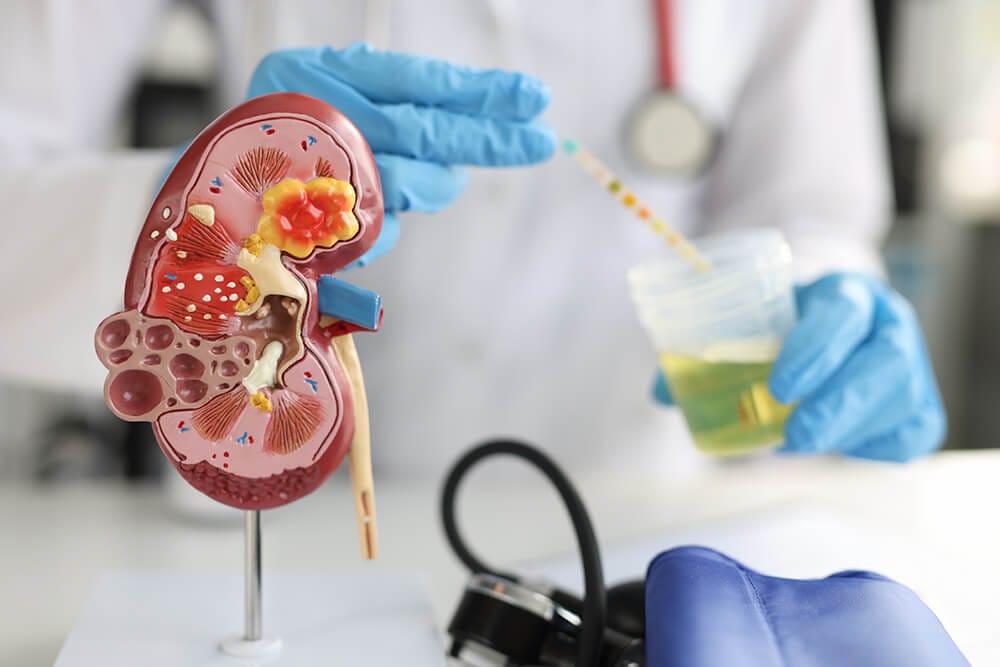
Before And After Ovarian Cyst Surgery
Before And After Ovarian Cyst Surgery
You’ll want to be as prepared as possible for any surgery you have coming up. Especially when it’s a surgery like ovarian cyst surgery, which is as invasive and personal as they come. This surgery is a last resort in most cases and should only be done in the presence of serious danger to your health.
However, if you have been diagnosed with an ovarian cyst that is threatening your life or long term wellbeing, this sort of surgery might be your best option. Fortunately, there are many tips that can help you get through this cyst operation much more smoothly than many other patients who undergo the same procedure. Let’s see what you need to know before and after ovarian cyst surgery.
Know What to Expect
Before we discuss all the tips for before and after ovarian cyst surgery, it’s important to understand what to expect from this procedure. Cysts are fluid-filled sacs that form within your ovaries. An ovarian cyst can be either benign (noncancerous) or malignant (cancerous). Benign cysts are typically small (less than 5 centimeters), while malignant cysts can grow quite large. Cysts can be diagnosed via ultrasound, MRI, or a laparoscopy. Laparoscopy is when your doctor uses a small camera attached to a long tube to look inside your abdomen. This allows them to see any cysts growing within your ovaries.
The most common treatment for ovarian cysts is surgery. There are multiple ways in which your doctor can go about removing the cyst. Your doctor may opt for an abdominal incision, in which they make a cut in your abdomen to gain access to your ovaries. Alternatively, they could go with a vaginal incision. This is when your doctor makes a small cut in your vagina and works inside your abdominal cavity from there.
Now let us have a look at what one should expect before and after ovarian cyst surgery.
Presurgical Preparations
Pre-surgery preparation for ovarian cyst surgery is very important, as it will help you get the most out of your procedure. Your doctor will likely have certain requirements for you to meet before you go under the knife, but you should be sure to do everything in your power to make your job easier. Before you have any type of operation, it’s important to know your options, such as whether you should have open surgery (minimally invasive) or laparoscopic surgery (small incisions). The size of the cyst also plays a critical role in determining how much time and effort will be involved.
In order to prepare for your surgery, you must take care of your health. You should not drink alcohol or consume caffeine before your surgery. You also need to make sure that you are properly hydrated. If you are taking any medications, you should be sure to consult with your physician before your surgery.
To prepare for the day of your surgery, you should wear comfortable clothes that are easy to move in. You should also bring a warm blanket and extra layers so that you can stay warm during your procedure.
You should also try to eat light meals or snacks before the surgery so that you do not have any food in your stomach when it is time for the procedure.
If you are driving, you should make sure that you have someone else drive you home after the procedure is over. Lastly, as always, your doctor will likely provide you with a list of medications that you need to avoid before and after ovarian cyst surgery.
Hormone Management and Nutrition
If you are undergoing ovarian cyst surgery, you might be receiving hormone therapy as a form of treatment. These hormones are commonly used to shrink ovarian cysts, so they can be very helpful in preventing surgery. Luckily, ovarian cyst surgery and hormone therapy can be done at the same time, but it’s important that you manage them correctly. You’ll want to make sure that you are taking your hormones as prescribed and that you are prepared for any possible side effects. In addition, you should also be making sure that your diet is as healthy as it can be before and after ovarian cyst surgery, so that your body is getting the energy it needs to recover from surgery.
What to expect after the surgery
After the surgery, your doctor will likely prescribe you antibiotics. You will most likely have to take these for a few weeks following the operation. You will have a small incision or two. Incisions will be closed using skin adhesives, and the region will be bandaged. However, you can take off the bandages 24 hours following the procedure. The glue or stitches will vanish within a few days without producing pus or infection.
You will experience an abdominal ache and bruising for a few days after the surgery. In addition, the gas in your abdomen after surgery may cause pain in your back and shoulders. You will experience vaginal discharge and spotting for a few days following the procedure. Bathing is permissible, but maintain a safe distance off the surgical site. It’s important to remember not to soak stitches in the bathtub or go swimming.
You will experience extreme fatigue for the first week following the procedure. You must gradually increase your exercise levels, starting with quick walks, ensuring that you do not rush.
After a few weeks, you should be feeling back to normal. However, depending on the size of your cyst, you may experience fatigue for a while.
Risks and Complications
As with any surgery, there are risks associated with ovarian cyst surgery. Some of the most common complications of this surgery include:
Blood clots
One of the most common complications of any surgical procedure is blood clots. You are more likely to form a blood clot after ovarian cyst surgery because your blood flow has been restricted. Blood clots can be dangerous if they break off and float through your bloodstream. This can lead to serious health issues such as pulmonary embolisms and strokes.
Infection
Any cut or open wound runs the risk of developing an infection. Your doctor will prescribe antibiotics for post-operative infections to help prevent this.
Wound healing issues
Poor wound healing can occur, especially if you don’t take care of your incision sites.
Nerve or organ damage
Any surgery, especially abdominal surgeries, have the potential to cause damage to nearby organs or nerves.
These are just a few of the many ways in which you can prepare yourself before and after ovarian cyst surgery. By keeping these points in mind you can expect a speedy and healthy recovery.
Conclusion
The most important thing to keep in mind when preparing for any surgery is to remain calm. This will help you avoid creating unnecessary stress and nervousness, which can lead to complications. Remember that the vast majority of people who undergo surgery experience no complications. They are able to get through the operation with relative ease and can then focus on recovery. With the right tips and knowing what to expect before and after ovarian cyst surgery, anyone who is preparing for or recovering can feel more prepared and relaxed.

















